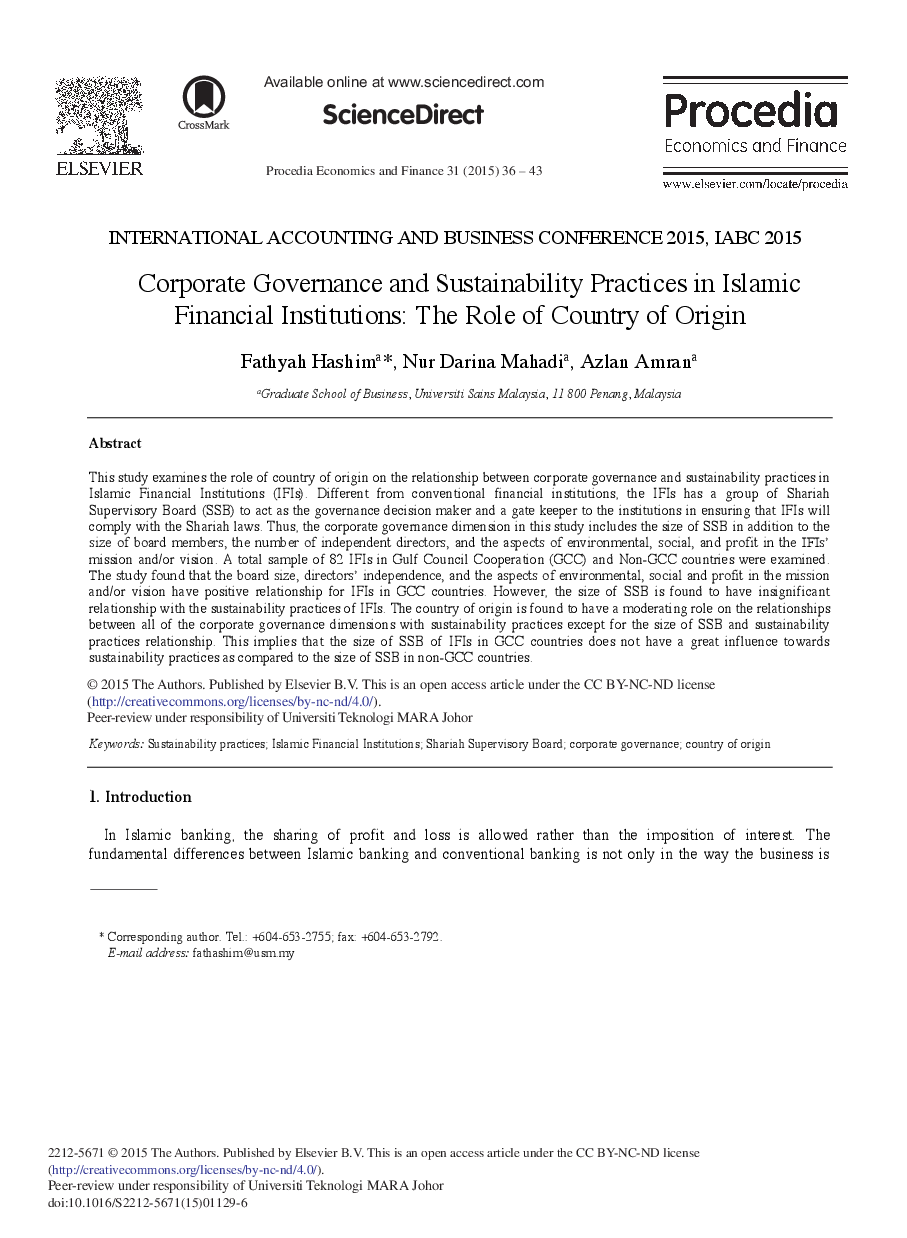ترجمه فارسی عنوان مقاله
حاکمیت شرکتی و شیوه های پایداری در موسسات مالی اسلامی: نقش کشور مبدا
عنوان انگلیسی
Corporate Governance and Sustainability Practices in Islamic Financial Institutions: The Role of Country of Origin ☆
| کد مقاله | سال انتشار | تعداد صفحات مقاله انگلیسی |
|---|---|---|
| 52025 | 2015 | 8 صفحه PDF |
منبع

Publisher : Elsevier - Science Direct (الزویر - ساینس دایرکت)
Journal : Procedia Economics and Finance, Volume 31, 2015, Pages 36–43
ترجمه کلمات کلیدی
شیوه های پایداری؛ موسسات مالی اسلامی؛ هیئت نظارت شرعی؛ حاکمیت شرکتی؛ کشور مبدا
کلمات کلیدی انگلیسی
Sustainability practices; Islamic Financial Institutions; Shariah Supervisory Board; corporate governance; country of origin

